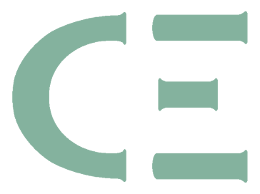Computational Engineering
Computational Engineering Programs
The bachelor program is horizontally divided into columns or sections representing the fields covered by the program. The vertical structure shows the succession of semesters from bottom to top. It normally takes six semesters to obtain the bachelor’s degree. The program is in German but students have the possibility to attend English lectures as well. It is open to anyone with the German high school qualification (Abitur, Allgemeine Hochschulreife) or an equivalent degree. Besides the sections Mathematics, Computer Science, and Technical Application Field (TAF), students have the opportunity to further specialize by selecting courses from the section Elective Technical Subjects. Furthermore, students have to take a seminar, a course on softskills and to complete a practical internship at industry (Industriepraktikum). The degree is obtained after finishing the bachelor’s thesis.
The master program is international and offered in German and in English. It covers four semesters of lectures. The last semester is mainly dedicated to the preparation of the master’s thesis. The horizontal structure of the program consists of the three sections Mathematics, Computer Science and Technical Application Field (TAF). Students have to attend a seminar. Generally, admission to the masters program requires an above average Bachelor or higher degree and is granted on a competitive basis.
Technical Application Field – TAF
The program in Computational Engineering offers a number of specialization areas called Technical Application Fields (TAF), e.g., thermo and fluid dynamics, computational optics or information technology. Students in the bachelor program have to select their TAFs during the second semester. Candidates for the master program must specify which of the TAFs they regard as their specialization area. A detailed description of all TAFs currently offered in Erlangen can be found in section Technical Application Fields.
Computational Engineering – an innovative interdisciplinary field
The education in Computational Engineering requires an interdisciplinary curriculum. Faculty members from several engineering departments, as well as from the computer science, mathematics and physics departments are in charge of the program. Each of the application fields is carefully adapted to the student’s background, career goals, and research interests. The study plan tailored individually for each student will include adequate course work in:
- Computer science (e.g. algorithms, software engineering, computer architecture)
- Mathematics (e.g. two years of engineering mathematics, numerical analysis, numerical linear algebra)
- An application field from engineering or physical science: (e.g., thermo and fluid dynamics, computational mechatronics, computational optics, automation and control or information technology)
Because of the interdisciplinary nature of the curriculum, students take courses in subjects outside their area of specialization. Graduates of the Computational Engineering program are well prepared for research and development in positions in the industry, as well as for an academic career.
The ECTS, the credit point system
According to the European Credit Transfer System (ECTS) a course is measured by a number of points, so-called ECTS-points. Typically, a single study module is evaluated with 2,5; 5; 7,5 or 10 ECTS-points. Students need to gather 30 ECTS-points per semester.
Modularity: the Format of Courses
A bachelor or a master program comprises a set of modules. The value of each module is given with the ECST credit point system. A module constitutes a consistent and temporally coherent study unit that is usually but not always concluded with an examination. Examinations are studienbegleitend, that is the written or oral examination takes place during the semester or during the following audit period. A module usually consists of a lecture (Vorlesung) and an exercise class or tutorial (Übung). Therefore, a lecture and the accompanying exercise course or tutorial belong together and cannot be taken as separate classes.
Study Plan (Studienkonzept)
Establishing an individual study plan (Studienkonzept) is mandatory in CE. The study plan specifies the TAF selected by the student. It also specifies the modules that the student has to pass in order to obtain the degree. Only modules listed in the study plan can be registered for examination. Both, the bachelor and the master programs provide standard study plans for each of the TAFs with a workload of at least 30 ECTS for each term. They consists of modules recommended by the program advisors for well founded education with the specialization given by the TAF.
